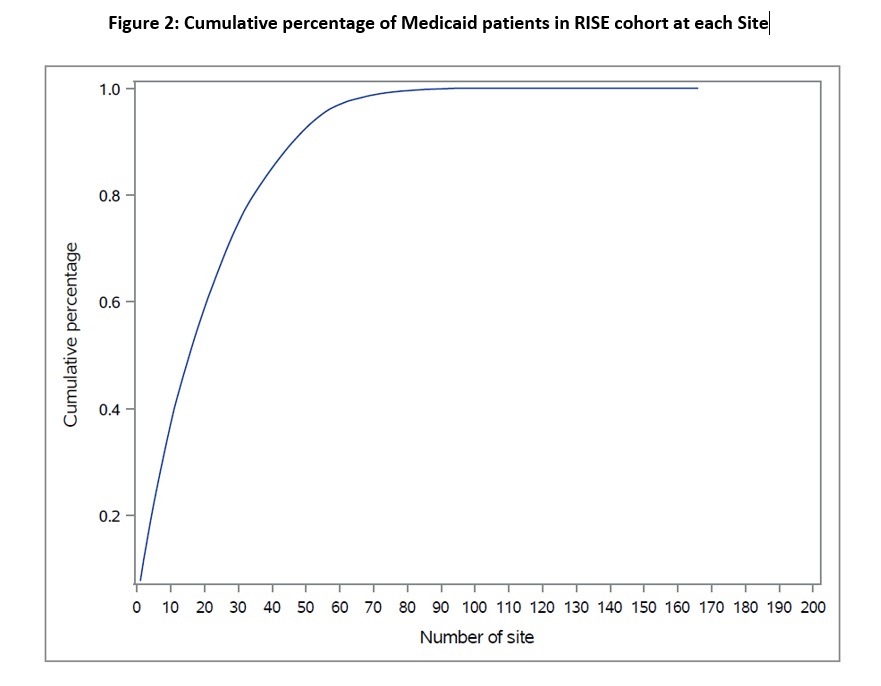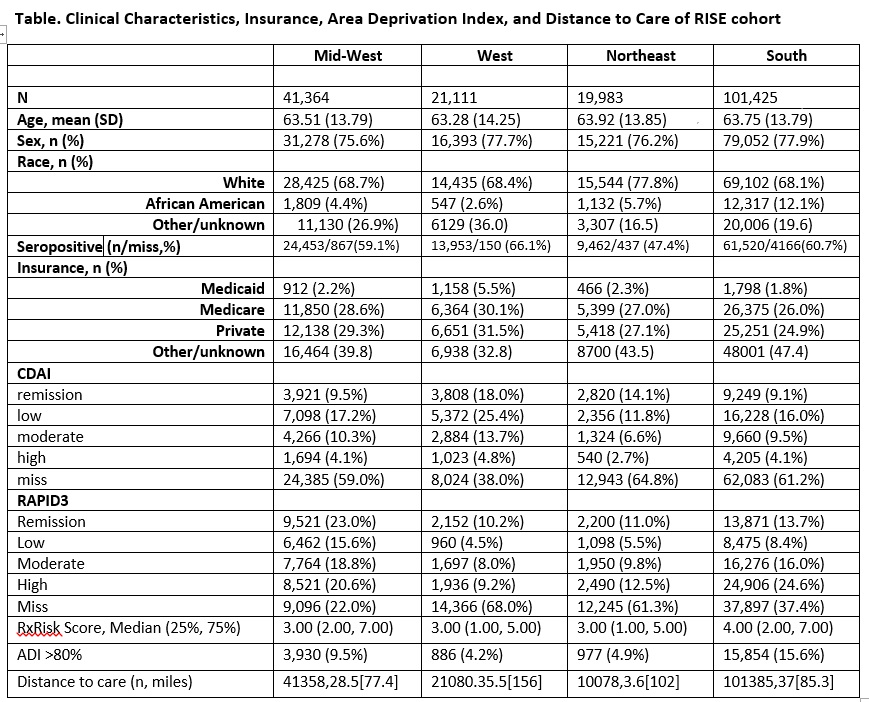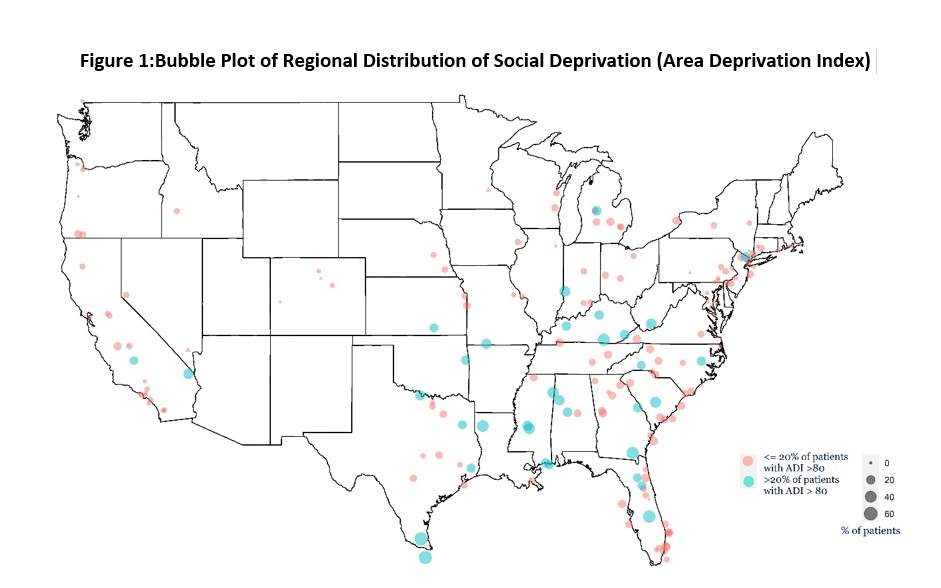Session Information
Date: Saturday, November 6, 2021
Title: Abstracts: Healthcare Disparities in Rheumatology (0492–0495)
Session Type: Abstract Session
Session Time: 4:00PM-4:15PM
Background/Purpose: The overall success of RA therapy is dependent on access to specialty care, insurance coverage and effective management of associated comorbidities. Whether RA disease burden, disease status and care differs amongst patients in various regions of the US, requires further delineation.
Methods: RA patients enrolled in the Rheumatology Informatics System for Effectiveness (RISE) registry with at least two ambulatory visits between 01/2018 and 03/2020 and ≥ 1 prescription for RA medication, were evaluated. Last ambulatory visit was defined as the index date; baseline defined as 18 months prior to index date. Seropositivity was evaluated using all available data, whereas RA disease activity (CDAI, RAPID3), comorbidity burden, sociodemographic status (SES), geographic region (West, Midwest, South, Northeast), health insurance type (Medicare, Medicaid, Private), were baseline. Comorbidity burden was evaluated using treatment risk (Rxrisk-no. of conditions treated out of 46 disease entities). Based on zip codes, we obtained area deprivation index (ADI= national/regional) to define low SES (i.e. ADI > 80 = high deprivation). Median travel distance between patients’ and practice sites zip codes, was calculated. A linear regression model was used to analyze associations between RA disease activity (CDAI/RAPID3) and comorbidity (# of RxRisk categories) adjusting for age, sex, geographic region, race and insurance type.
Results: Enrollment data for 184,722 RA patients (mean age 64 years [13.85], 77.2% female) from 182 RISE sites was analyzed (Table 1). Disease activity was higher in blacks, and in patients from South regions and with Medicaid/Medicare coverage. Mean ADI was 45.56 [25.85] with 12% of sites in high deprivation areas (ADI >80), which was particularly relevant to practice sites in the South, and with higher frequencies in rural vs urban areas (Figure 1). Patients with ADI >80 received primarily Medicaid coverage, the majority of whom were seen by a minority of providers; >60% of socially deprived patients were cared for by only 22% of RISE practices. Overall, the median percentage Medicaid participants for sites was 0.16%, with fewer than 20 rheumatology practices caring for 50% of all RA patients (Figure 2). Most patients resided within 50 miles of their provider, but 2.9% of patients were >200 miles away from specialist care, mainly in South and West regions. Like disease activity, higher category RxRisk patients had predominant Southern regional distribution and Medicare/Medicaid coverage, but < 200 miles to access care. There was significant correlation between RxRisk and disease activity (Pearson coefficient: RAPID3 0.28, CDAI 0.15).
Conclusion: Type of insurance, not race or distance to specialty care, was associated with overall RA disease activity and burden). A disproportionately large fraction of socially deprived, rural, high comorbidity, and Medicaid-covered RA patients were cared for by a minority of rheumatology practices. Studies are needed in high deprivation areas to determine the impact of interventions targeting more equitable distribution of specialty care, enhanced reimbursement and access to advanced therapies, so as to improve RA patient outcomes in vulnerable patients.
 Figure 2 RISE ACR abstract.JPEG
Figure 2 RISE ACR abstract.JPEG
To cite this abstract in AMA style:
Dowell S, Yun H, Curtis J, Chen L, Pedra-Nobre M, Wollaston D, NAJMEY S, Lawrence-Elliott C, Lawrence-Ford T, North H, Dore R, Dolatabadi S, Ramanujam T, Winkler A, Kennedy S, Ott S, Ledbetter S, Wright G, Kerr G. The Distribution of Social Deprivation, Distance to Care and Disease Burden in Rheumatoid Arthritis Patients in the United States [abstract]. Arthritis Rheumatol. 2021; 73 (suppl 9). https://acrabstracts.org/abstract/the-distribution-of-social-deprivation-distance-to-care-and-disease-burden-in-rheumatoid-arthritis-patients-in-the-united-states/. Accessed .« Back to ACR Convergence 2021
ACR Meeting Abstracts - https://acrabstracts.org/abstract/the-distribution-of-social-deprivation-distance-to-care-and-disease-burden-in-rheumatoid-arthritis-patients-in-the-united-states/


